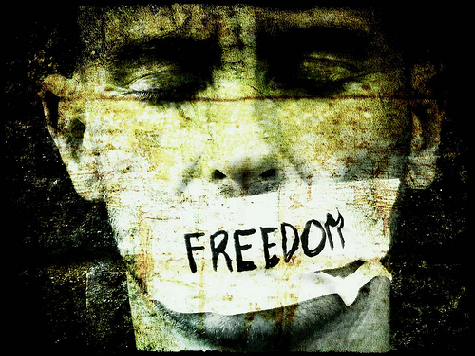
As the media prepared to vacate newsrooms for the weekend, Democrats snuck in a last minute proposal that the Federal Elections Commission (FEC) be allowed to heavily regulate political content on internet sites such as Youtube, blogs, and the Drudge Report.
Obama FEC Vice Chairperson Ann M. Ravel announced late on Friday that the FEC was preparing new regulations to give itself control over videos, Internet-based political campaigns, and other content on the web. She insisted that, “A reexamination of the commission’s approach to the internet and other emerging technologies is long overdue.”
This snap decision came after the FEC deadlocked 3-3 over whether or not an anti-Obama Internet campaign in Ohio had violated FEC campaign disclosure rules. The videos were placed for free on Youtube and were not paid advertising, but they also did not disclose who made them.
Until now, videos and other political content that is not posted for a fee are unregulated by the FEC. Only paid advertising is regulated under election rules. It is this that the Democrats want to change.
“FEC Chairman Lee E. Goodman, a Republican, said if regulation extends that far, then anybody who writes a political blog, runs a politically active news site, or even a chat room could be regulated,” the Washington Examiner reported on October 24.
“I have been warning that my Democratic colleagues were moving to regulate media generally and the Internet specifically for almost a year now,” Goodman told FoxNews.com. “And today’s statement from Vice Chair Ravel confirms my warnings.”
Chairperson Ravel says that it should be illegal for free Internet videos to be used for paid TV advertising. But Goodman points out that Ravel is conflating the matter, and that FEC rules already regulate that situation. TV ads are paid advertising and already fall under regulatory oversight, he said.
Goodman and the other two FEC commissioners who voted that the Ohio videos did not violate regulations lamented the decision by the chair to float oppressive new limits on political free speech on the Internet. “Regrettably, the 3-to-3 vote in this matter suggests a desire to retreat from these important protections for online political speech–a shift in course that could threaten the continued development of the Internet’s virtual free marketplace of political ideas and democratic debate,” they wrote.
Follow Warner Todd Huston on Twitter @warnerthuston or email the author at igcolonel@hotmail.com

COMMENTS
Please let us know if you're having issues with commenting.